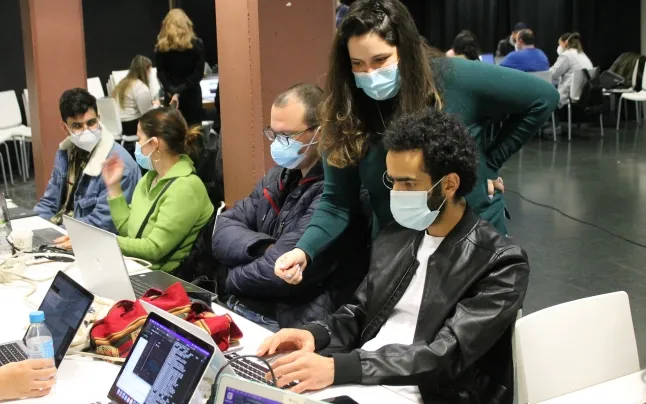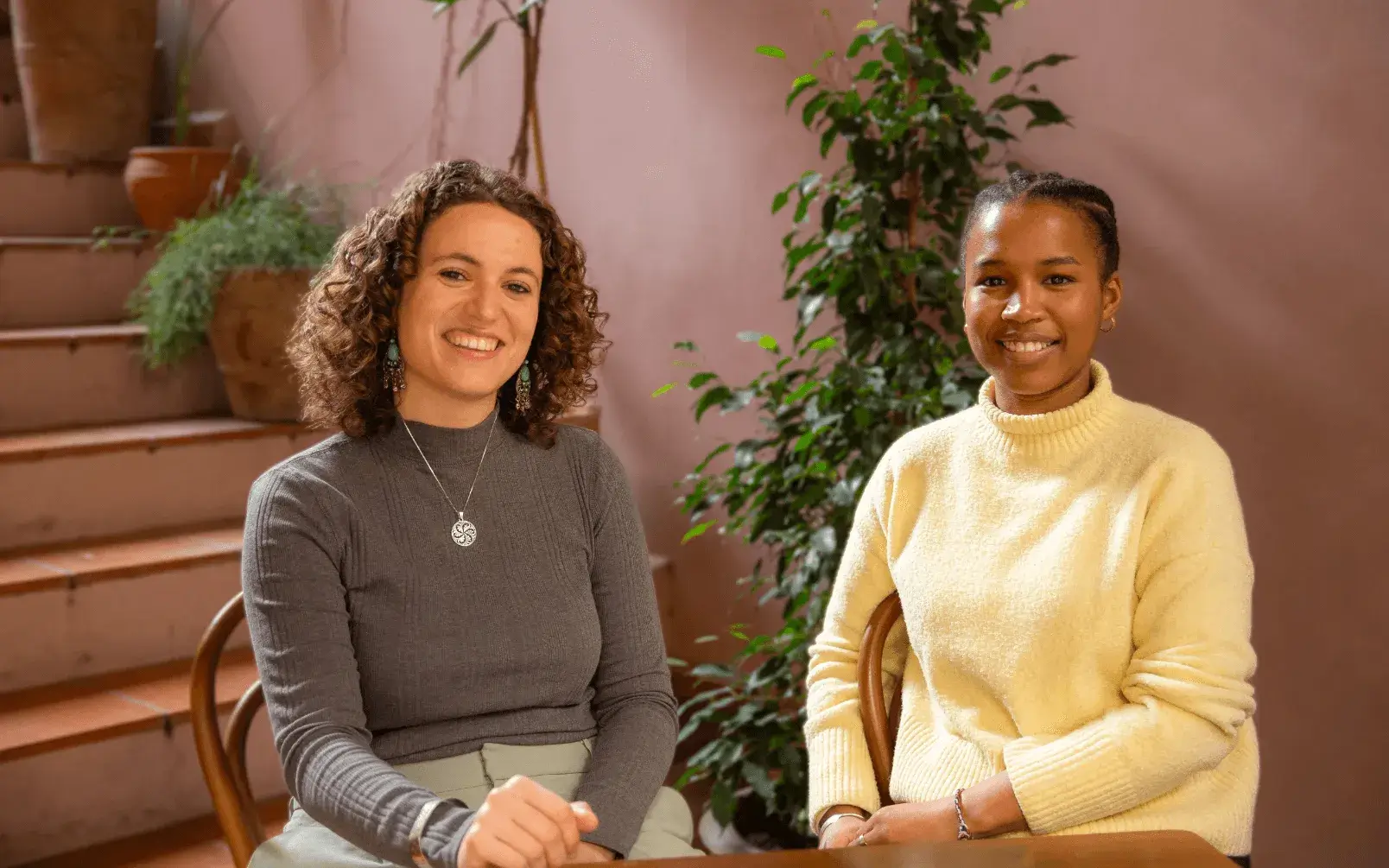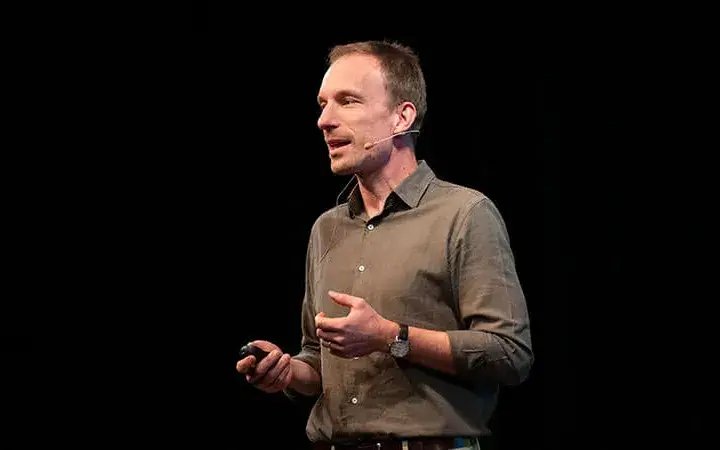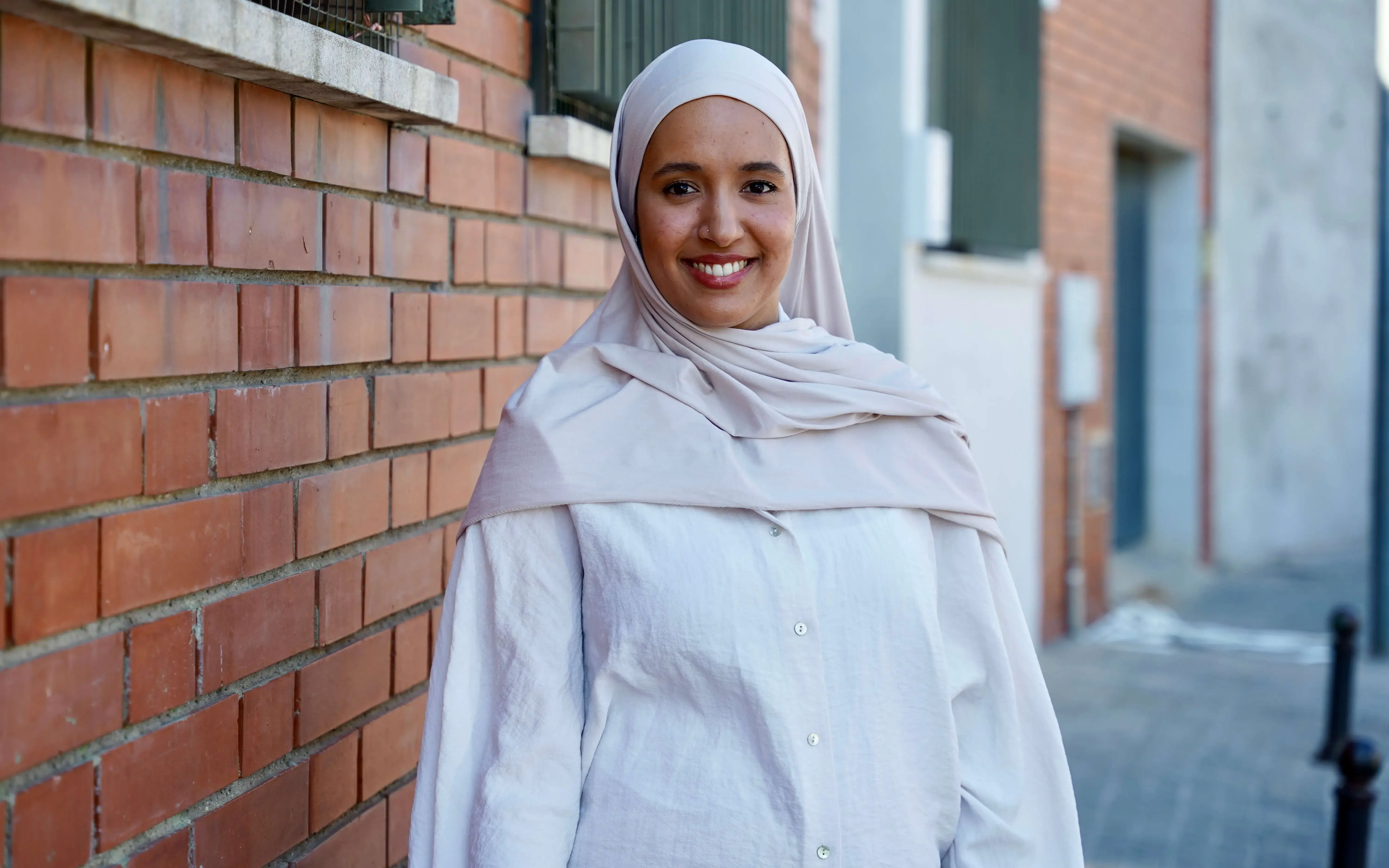Marta Hormaechea: “Sometimes we tend to assume that, coming from a different country means they know less”

MigraCode is a project aiming to meet the needs of migrants and refugees who have training in the field of technology or wish to have so.
Open Cultural Center works in Barcelona and Greece to favour the inclusion of migrants and refugees through a range of educational and cultural activities. Within this framework we find MigraCode, a programme offering training in information and communication technologies (ITCs) and work placements in the field of technology for migrants and refugees.
Marta Hormaechea is the person in charge of associations and communication and is part of a small team working with volunteers since 2019 to provide training that is unique in Catalonia for newly arrived persons.
What is MigraCode?
MigraCode is a free technology academy for migrants, refugees and asylum seekers. It offers two vocational, non-formal training courses to train people in the technology professions.
One is on ITC security and support, which trains people in professional skills so they can work in customer services and technical support in any technology company. The other is a course lasting eight months to train people as web developers.
Taking eight months of one’s time when your legal status isn’t stable may seem difficult.
A course lasting eight months with 30 course hours a week and additional work at home entails a strong commitment for people who are in an extremely vulnerable situation; people who also have a family to look after and maybe a job…
What is the usual profile of people interested in these courses?
Usually it’s younger people; let’s say around thirty. Mostly, people who have come to Catalonia alone or with a partner. 20 to 30% of them have had previous training in their countries of origin. And that is precisely why we are here, because there are many people with university degrees who can’t use them here.
During initial training sessions we have had mothers, people with no training at all, or who may only have primary education. These courses are accessible to all, it’s more about having a certain way of thinking than having previous knowledge on the topic.
I’m guessing the gender gap is larger in the technology sector for women coming from different countries.
Indeed, when we’re talking of women from different places, the gap in the technology sector is much greater. Obviously this is what we focus on, because one of our goals is to include women in all their diversity in the sector. We do also work, for instance, with women who have a degree in electrical engineering.
I think sometimes we tend to assume that just because they come from a different country, they have less knowledge, but this is far from true.
Is that why you set up the CodeWomen group?
We have women who are really good at it and volunteers who are role models for all; and then we have women who may be slightly less savvy in this field. What’s great is for all of them to come together in a space that is safe and with solidarity for them to help each other and share concerns.
Is it more complex for women to join the work market in the field of technology?
Even if the gender gap is big in this sector, there is a growing awareness and a growing number of companies are trying to recruit more women. Those companies we are in touch with want to have women on their teams and maybe don’t have any. I believe women with a high level of knowledge have it easier because everyone is after them.
What is the role of volunteers at MigraCode?
Without them there’d be no project. We even have volunteers who trained with us, and that is even more helpful because they act as role models as migrants who have managed to succeed thanks to these trainings. I really believe they are motivated to make improvements in their sector because they’ve identified the gender gap and a lack of diversity.






Add new comment